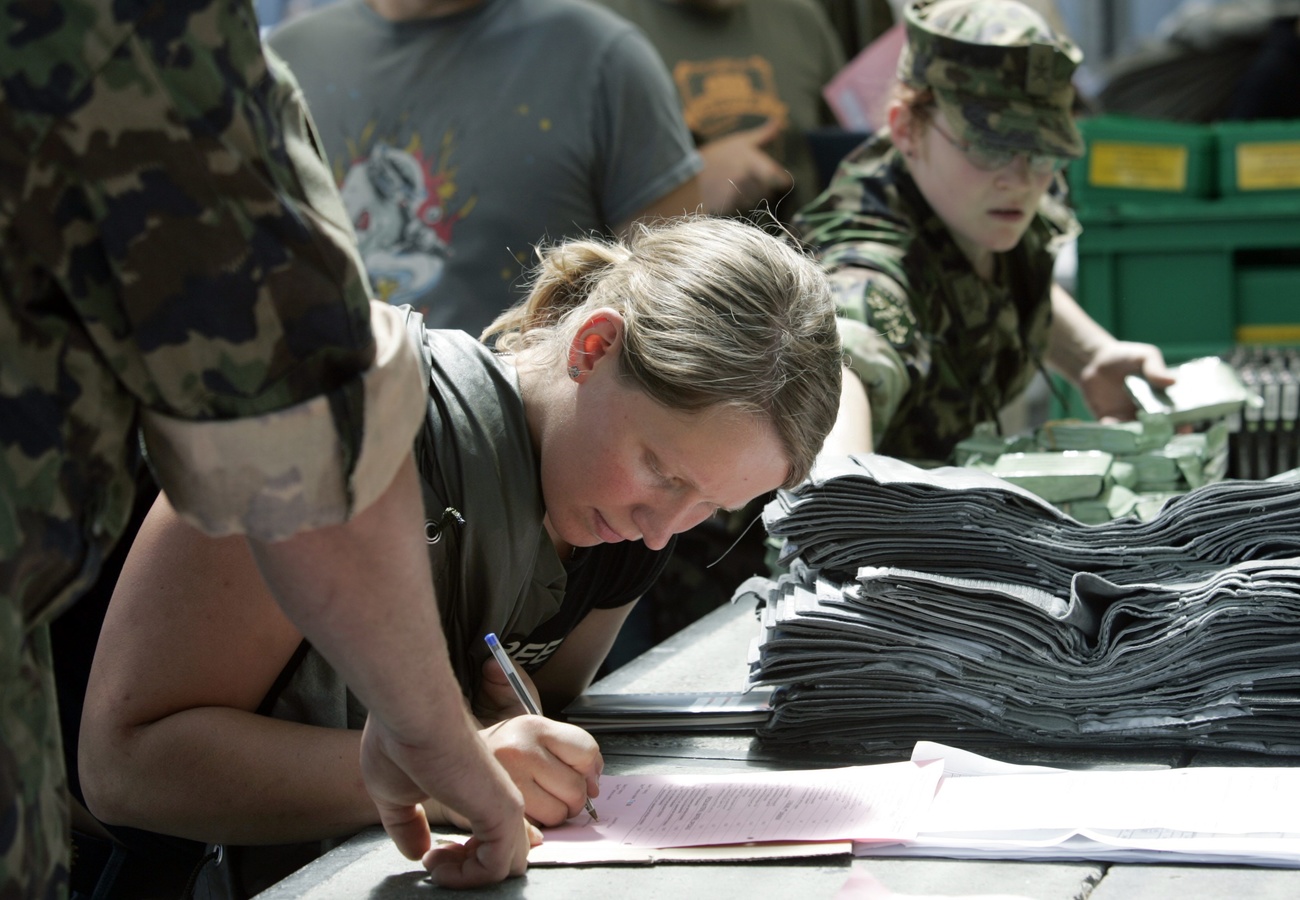
‘Vital for the future’: what our readers think of gender-neutral conscription
Public opinion on extending the draft to women in Switzerland has come a long way in the last decade, reflecting both political and societal developments in a country known for embracing the status quo.
Readers of SWI swissinfo.ch who took part in a debate about whether Switzerland should draft women alongside men in the military or in an alternative civilian service largely approve of the idea. Although a few believe issues affecting gender equality, such as pay parity and more support for childcare, ought to be addressed first, the majority say it is time for women to be obliged to serve just as men are.
“Great idea,” said one user. “To be truly equal, women should do the same jobs as men.”
“By having equal conscription obligations, women can hugely contribute to the defence of Switzerland,” said another.
These views tend to reflect the prevailing mood in the country. According to a 2021 surveyExternal link by the Centre for Security Studies (CSS) at the federal technology institute ETH Zurich, 67% of Swiss support compulsory service for both men and women.
But it was not always so. Back in 2011, when the CSS first asked respondents this question, opinion was divided. Just 52% agreed that both women and men should perform some form of compulsory service (army, civilian service or social service).
At the time conscription was going out of fashion in Europe, with countries such as Sweden, Germany and Serbia casting their draft systems into the bin.
“The traditional conscript armies clearly lost their importance after the end of the Cold War,” says Thomas Ferst, project leader for the CSS Security Survey. Being part of a defence alliance, NATO members in particular saw no need to keep large standing armies.
In Switzerland too, the need for military service was being hotly debated, spurred by the launch of a popular initiative to abolish conscription. Ultimately, however, 73% of voters rejected the initiative when it landed at the ballot box in 2013. A government-commissioned study published a year later confirmed there was no reason to fundamentally change the status quo.
‘Security is also female’
With the draft here to stay, the idea of including women in compulsory service has since gained traction. After Norway became the first European country to introduce gender-neutral conscription in 2015 (followed a few years later by Sweden), the debate in Switzerland has focused increasingly on adapting the existing system to encourage more people – including women – to join up. The government is now studying the merits of gender-neutral conscription, among other options, for reforming the current recruitment model.
Public opinion too has evolved. By 2021 support for drafting both women and men jumped 14 percentage points compared to 2015. A more intense public debate about gender and inclusion marked by #metoo and the 2019 women’s strike, in which tens of thousands of Swiss mobilised for gender equality, may have something to do with this evolution, according to Ferst.
The military expert also points to the arrival of the country’s first female defence minister, Viola Amherd, in 2019. Amherd has been vocal about her desire to see more women in the military and wants to bump the percentage of women in the armed forces from the current 1% to 10% by 2030. Her department even launched a special ad campaignExternal link with the tag line “Security is also female” to woo young women.
As a result, people are becoming more aware of the presence – or absence – of women in the military, and that awareness will inevitably be reflected in public opinion polls, says Ferst.
The pendulum also appears to be swinging back in favour of conscription in general. Lithuania and Ukraine reintroduced the draft after Russia’s annexation of Crimea in 2014. France is piloting what it calls National Universal Service for young people. The war in Ukraine has also sparked a debate about the merits of compulsory service in several European countries, including Germany.
Back in Switzerland, any government proposal to extend the draft to women would first need the approval of voters.
“The outcome of [a referendum] is likely to be significantly dependent on social change and political discourse,” says Ferst. The prevailing international security situation could also play a role.
Predictions, however, are hard to make, the military expert cautions. What’s clear from the 2021 survey is that the Swiss generally are “open and positive” towards the option of gender-neutral conscription, in Ferst’s words. And with war raging in Ukraine, a follow-up pollExternal link in 2022 shows they remain as supportive as ever (65%) of compulsory service.

































You can find an overview of ongoing debates with our journalists here . Please join us!
If you want to start a conversation about a topic raised in this article or want to report factual errors, email us at english@swissinfo.ch.